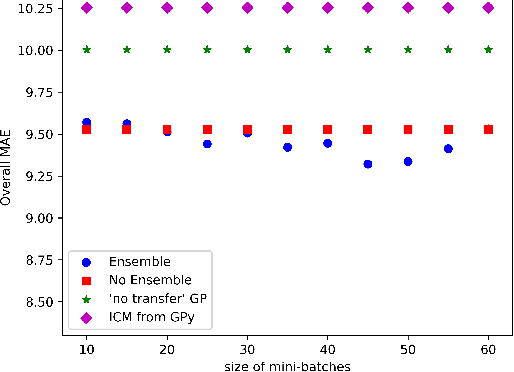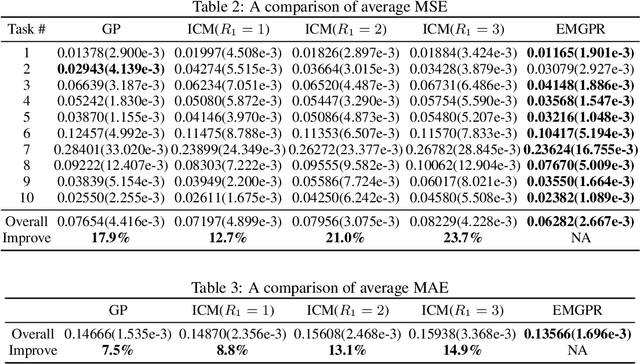Ensemble Multi-task Gaussian Process Regression with Multiple Latent Processes
Paper and Code
May 09, 2018



Multi-task/Multi-output learning seeks to exploit correlation among tasks to enhance performance over learning or solving each task independently. In this paper, we investigate this problem in the context of Gaussian Processes (GPs) and propose a new model which learns a mixture of latent processes by decomposing the covariance matrix into a sum of structured hidden components each of which is controlled by a latent GP over input features and a "weight" over tasks. From this sum structure, we propose a parallelizable parameter learning algorithm with a predetermined initialization for the "weights". We also notice that an ensemble parameter learning approach using mini-batches of training data not only reduces the computation complexity of learning but also improves the regression performance. We evaluate our model on two datasets, the smaller Swiss Jura dataset and another relatively larger ATMS dataset from NOAA. Substantial improvements are observed compared with established alternatives.
 Add to Chrome
Add to Chrome Add to Firefox
Add to Firefox Add to Edge
Add to Edge